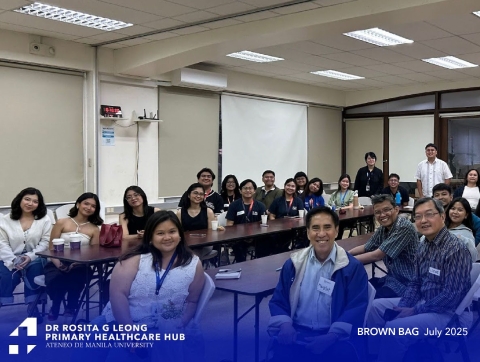Ateneo School of Government launches pioneer cohort of the Leadership and Governance in Tobacco Control (LGTC) executive course
13 Dec 2024
From 28 to 29 November 2024, the Ateneo School of Government (ASOG), through the Ateneo Policy Center (APC), conducted the on-site delivery of the Leadership and Governance in Tobacco Control (LGTC) Executive Course at Seda Vertis North Hotel. The course aims to empower tobacco control champions by strengthening the capacity of local leaders to utilize their platforms for advancing effective tobacco control efforts. The participants in this pioneer cohort included representatives from selected LGUs from the Province of La Union and Metro Manila. This three-day course, equivalent to 24 training hours, was administered primarily onsite and reinforced with an online, asynchronous component using the Canvas learning management system. The first two days of the course took place last 28 and 29 November, and the third day will follow on 16 December 2024.
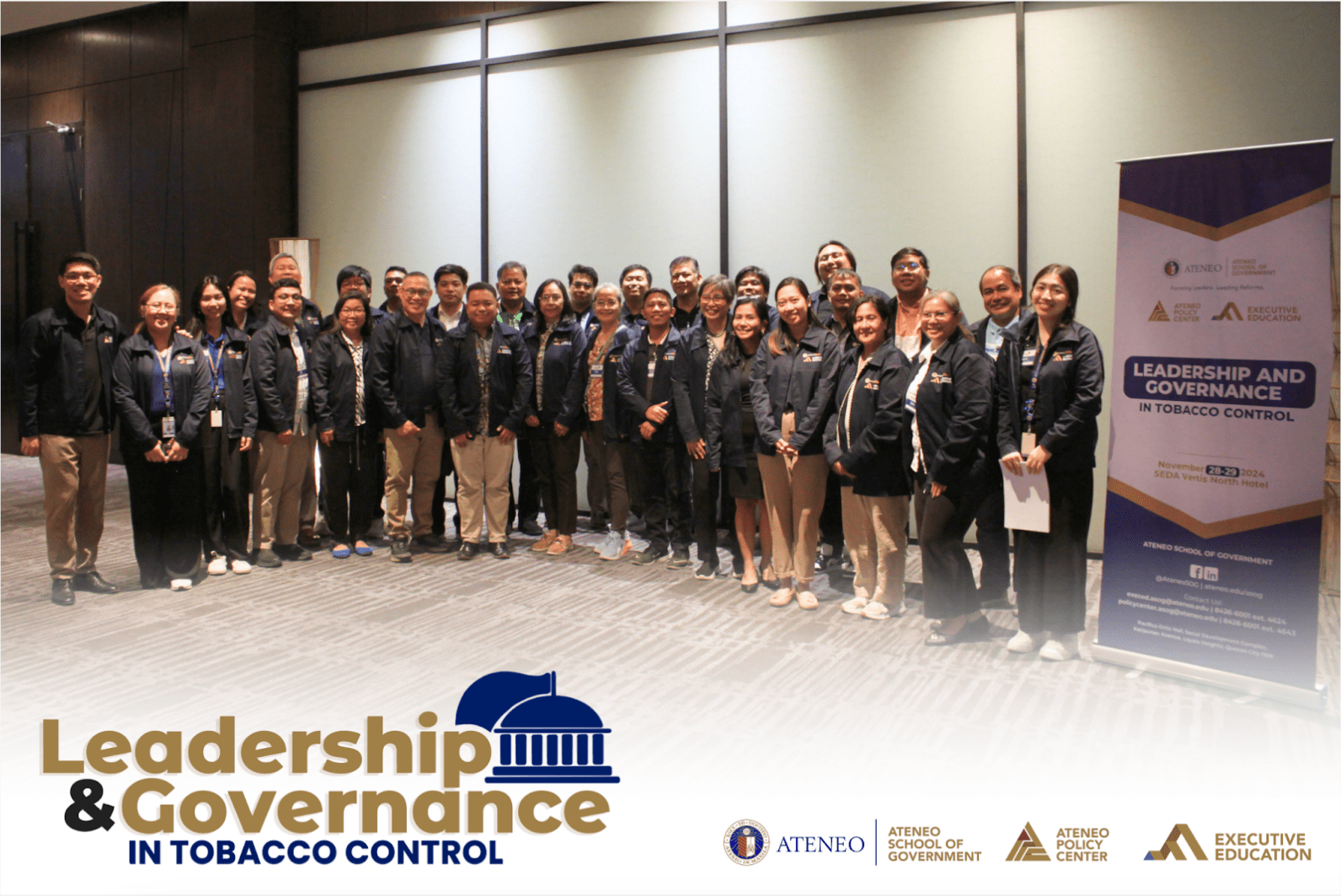
Day 1: Introduction to Tobacco Control and Advancing Robust Tobacco Control Measures and Strategies
Atty Benedict G Nisperos, legal consultant of HealthJustice Philippines, opened the morning session for day one, with the first module entitled, “Tobacco Prevention and Control.” The session previewed a snapshot of the socio-economic impacts of tobacco use globally and locally. The module also introduced an overview of tobacco control as a global project geared towards stronger, sustainable health policies. During the group discussion, Atty. Nisperos provided a guide for the participants to refer to when reviewing and/or crafting tobacco control-related ordinances in their respective LGUs.
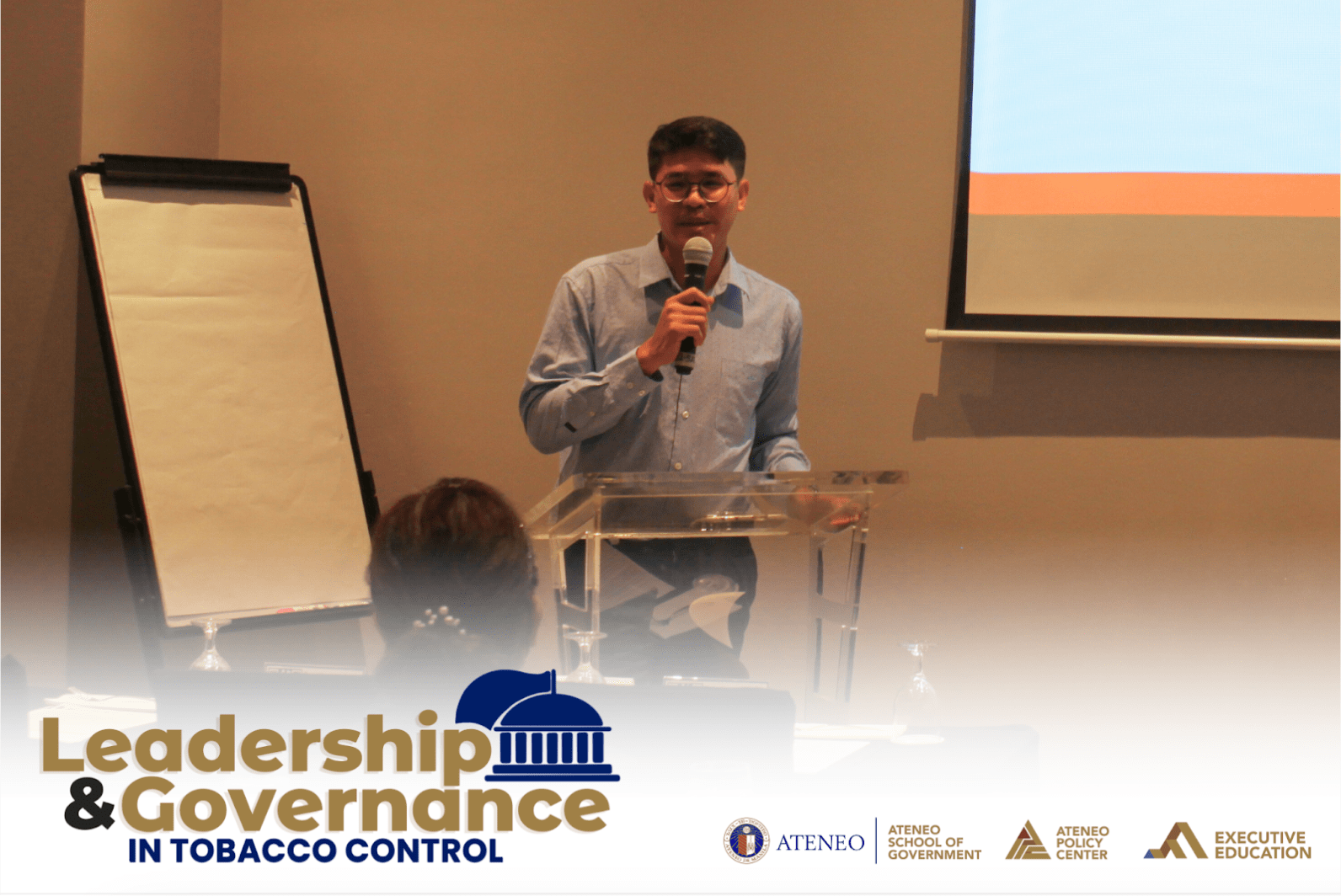
Following the first session, Atty Jacky Sarita, Managing Director of HealthJustice Philippines, delivered Module 2, “Advancing More Robust Tobacco Control Measures.” During the session, he introduced the Tobacco-Free Generation initiative, the MPOWER framework, and other tools/concepts to aid the participants in visualizing stronger tobacco control measures that reinforce the making of a tobacco control ordinance.
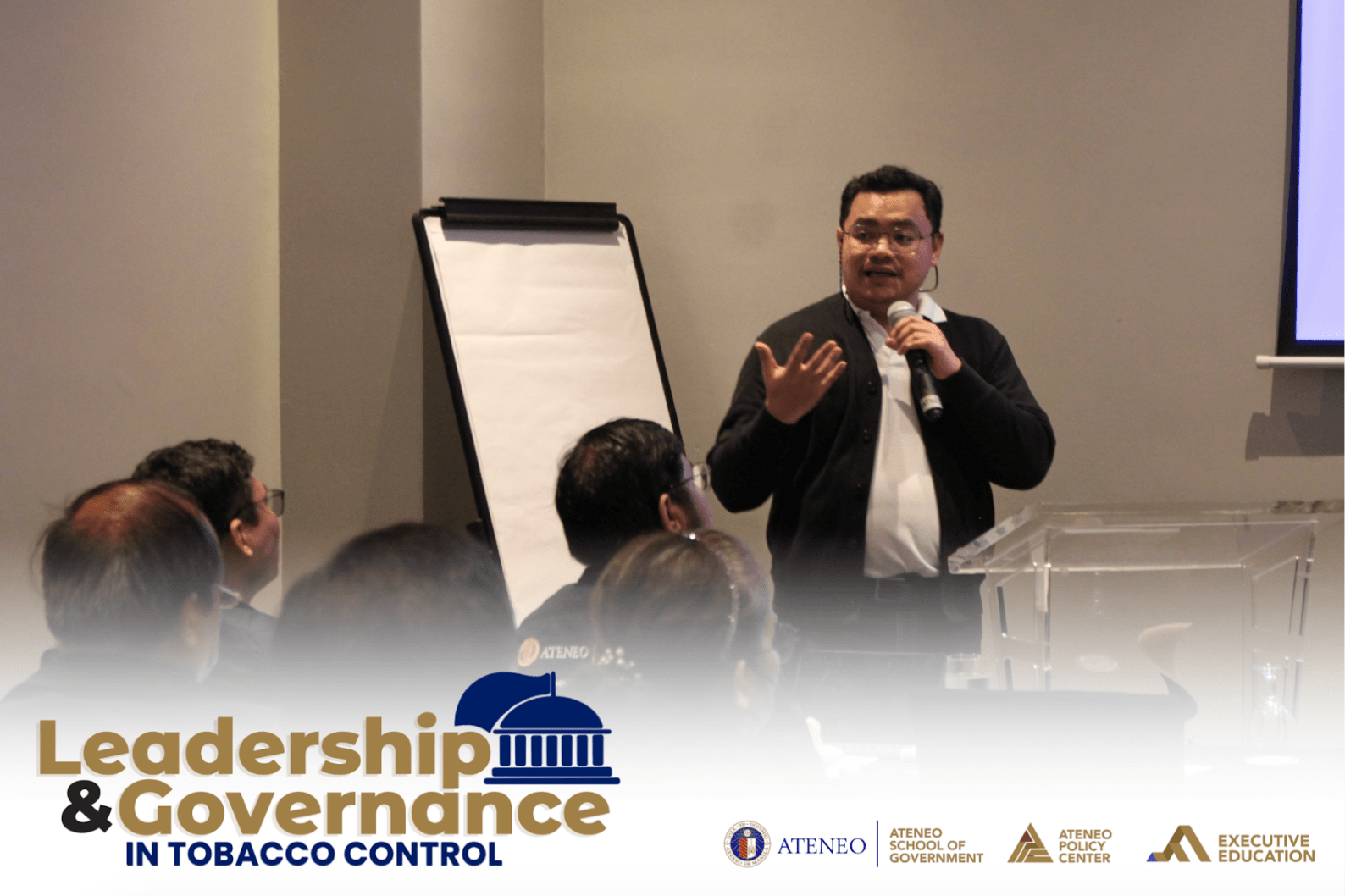
Day 2: Tobacco Industry Interference, Contextualizing Tobacco Control at the Local Level, and Best Practices by Learning Partners
Day two was first led by Mr. Ralph P Degollacion, Managing Director of HealthJustice Philippines, in which he delivered the third module entitled, “Tobacco Industry Interference (TII).” He facilitated a group activity wherein participants were assigned different TII case scenarios that they needed to analyze and provide solutions for. When the group discussions concluded, each group selected a representative to present the solutions they devised.
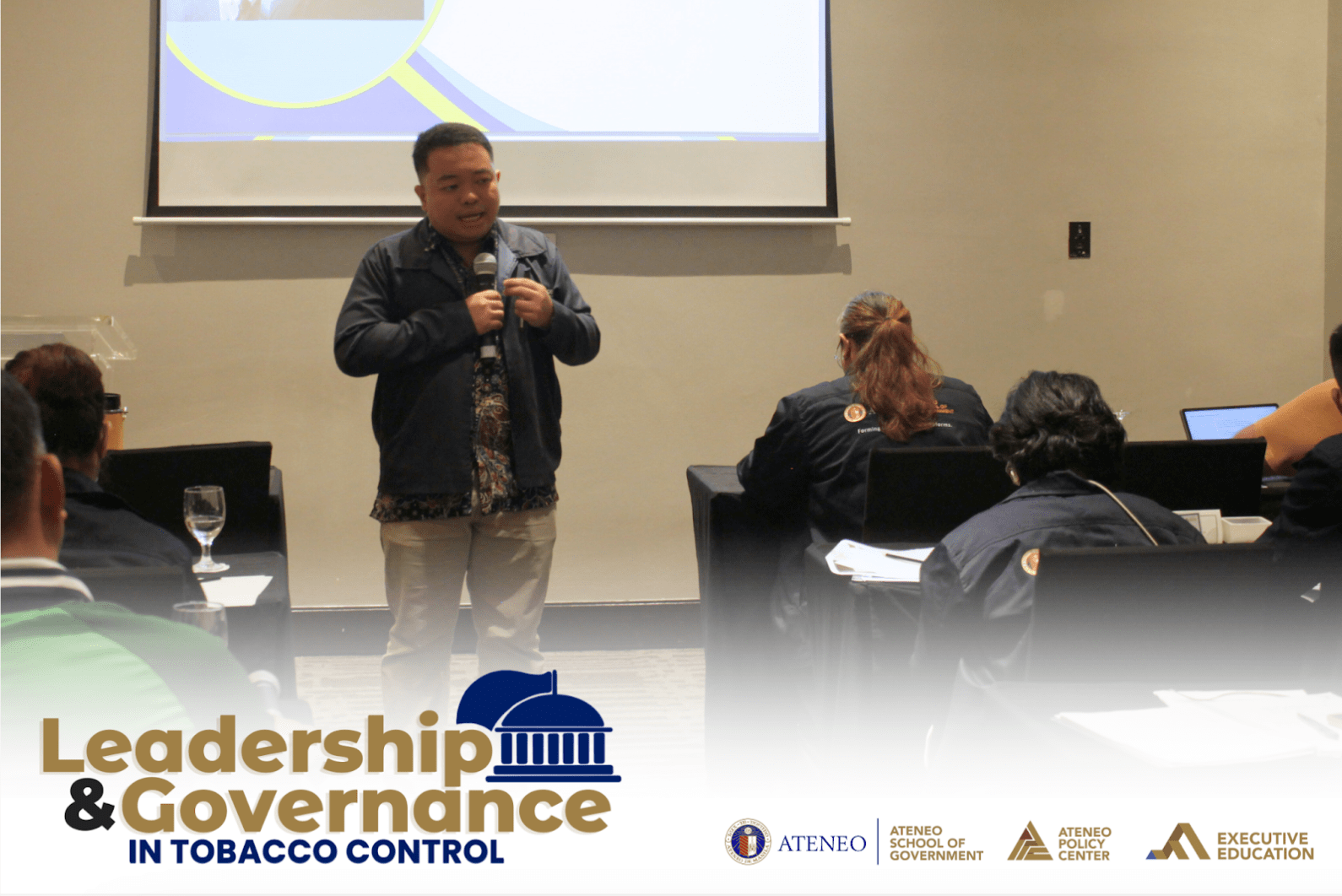 The afternoon session for Module 4 was led by representatives of the three LGU learning partners for the course: Mr. Iñigo Garingalao from Iloilo City, Dr. Donnabel Panes from Baguio City, and Ms. Bianne Espolong of Balanga City. Each presentation included discussions between the learning partners and the participants, particularly the sharing of insights, challenges, and best practices of tobacco control at the local level.
The afternoon session for Module 4 was led by representatives of the three LGU learning partners for the course: Mr. Iñigo Garingalao from Iloilo City, Dr. Donnabel Panes from Baguio City, and Ms. Bianne Espolong of Balanga City. Each presentation included discussions between the learning partners and the participants, particularly the sharing of insights, challenges, and best practices of tobacco control at the local level.
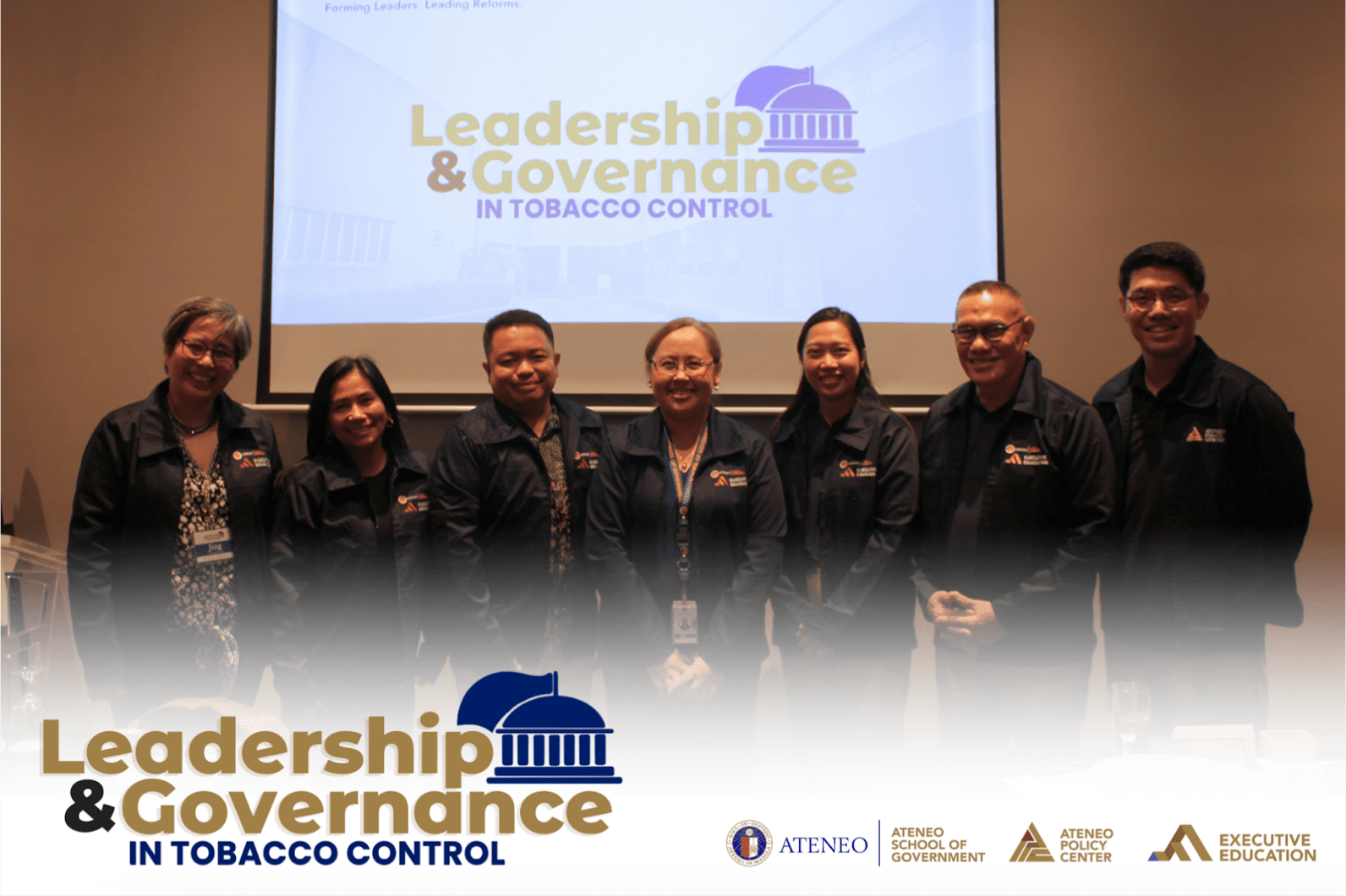
Mr Iñigo D Garilangao, Chief of the Iloilo City Agriculture Office, discussed the different key actors and roles that come with tobacco control implementation at the local level. In his discussion, he highlighted the components and sustainability of the Iloilo City Anti-Smoking Task Force (ICAST).
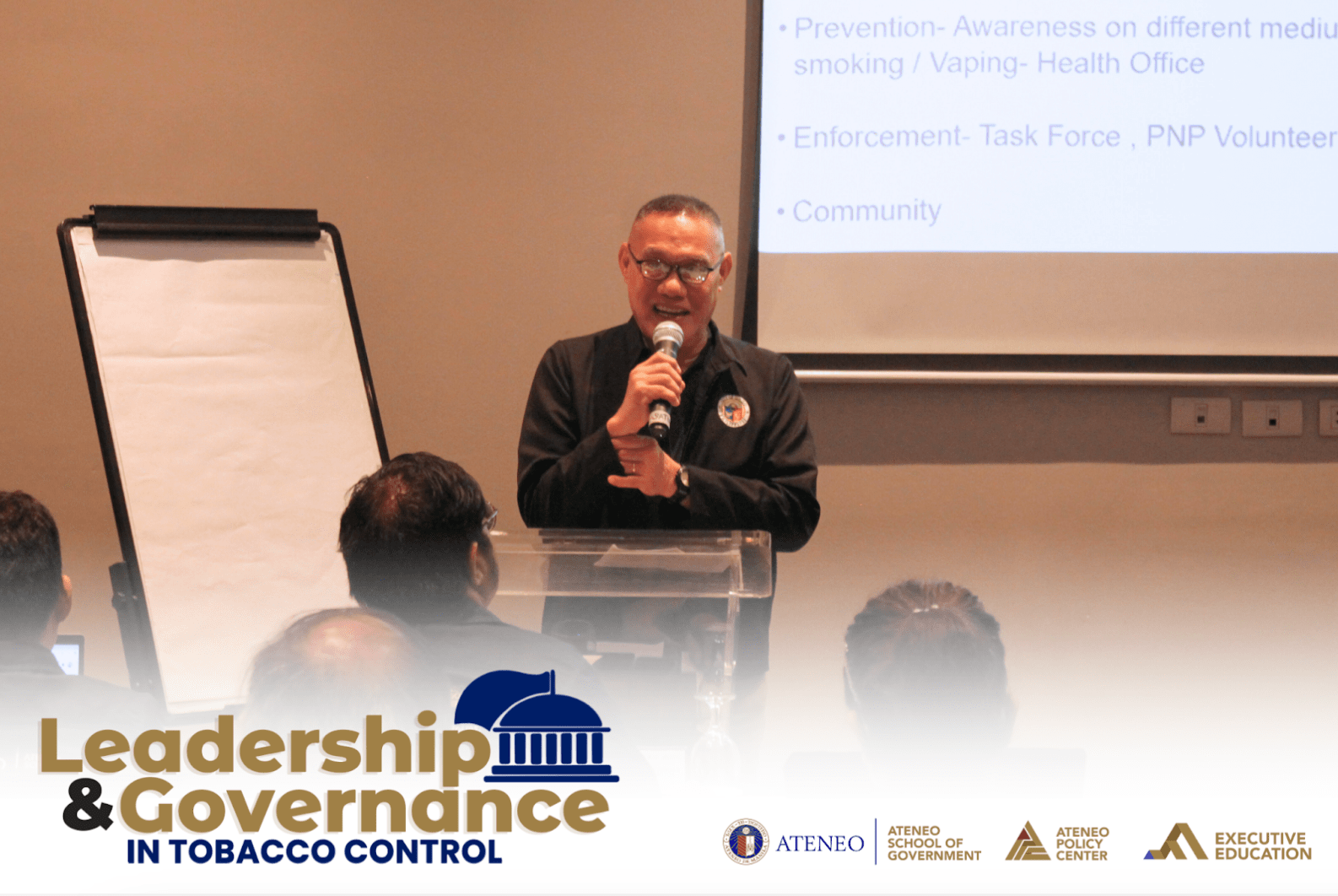 Dr Donnabel T Panes, the City Epidemiologist-Medical Officer IV from the Health Services Office of Baguio City, shared the tobacco control and prevention success story of Baguio City. Her presentation accentuated the importance of a multi-sectoral approach in advancing tobacco control at the local level. She delved into the necessary components of a transformative tobacco control implementation, taking into consideration a locality’s strengths, limits, and history.
Dr Donnabel T Panes, the City Epidemiologist-Medical Officer IV from the Health Services Office of Baguio City, shared the tobacco control and prevention success story of Baguio City. Her presentation accentuated the importance of a multi-sectoral approach in advancing tobacco control at the local level. She delved into the necessary components of a transformative tobacco control implementation, taking into consideration a locality’s strengths, limits, and history.
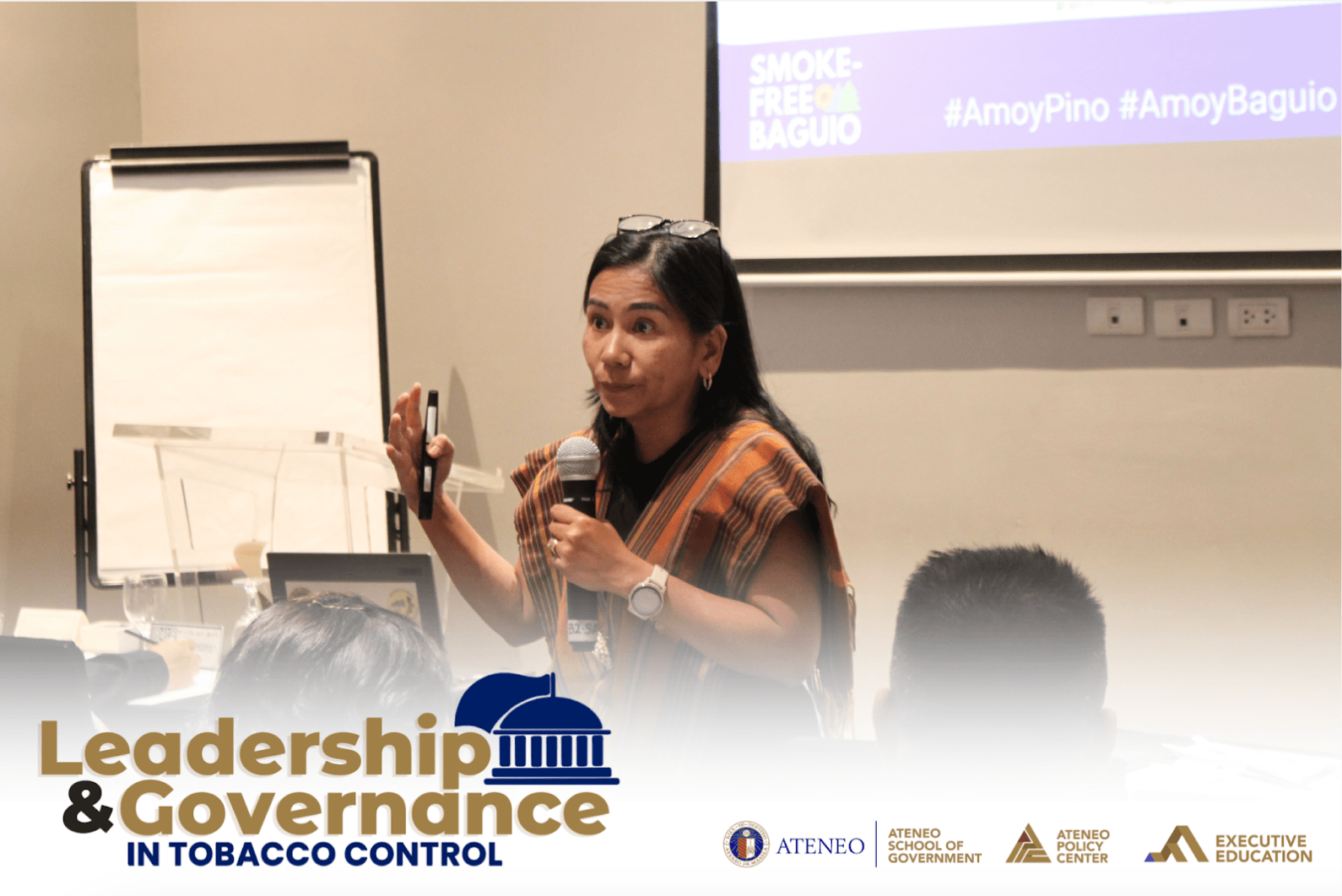 Ms Bianne P Espolong, RPm, the Health Education and Promotion Officer II of the City Health Office of Balanga City, also shared the journey of her city towards achieving a smoke-free status. She emphasized the significance of being informed and making use of a locality’s strengths and unique features in developing tobacco control strategies. These include community and stakeholder involvement, the role of youth in advancing health education and awareness, and many others.
Ms Bianne P Espolong, RPm, the Health Education and Promotion Officer II of the City Health Office of Balanga City, also shared the journey of her city towards achieving a smoke-free status. She emphasized the significance of being informed and making use of a locality’s strengths and unique features in developing tobacco control strategies. These include community and stakeholder involvement, the role of youth in advancing health education and awareness, and many others.
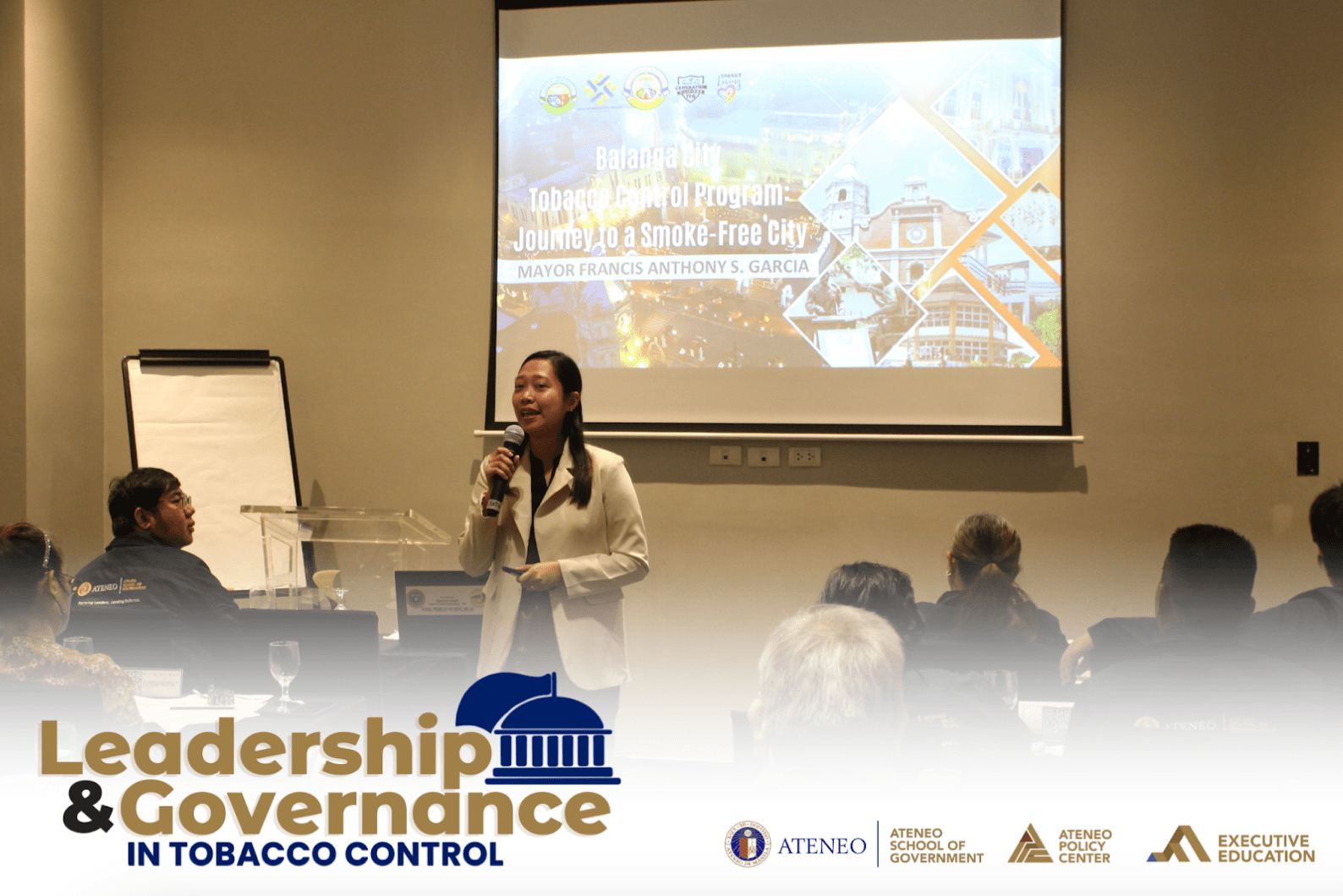
Moving Forward
The LGTC Executive Course is set to culminate on 16 December 2024, at the Ateneo School of Government. The third and final day of the course will commence with the plenary presentations of the participants, followed by a graduation ceremony in recognition of their completion of the executive course. Aside from the participants, other partners and stakeholders from the larger tobacco control community have been invited to attend the event.


